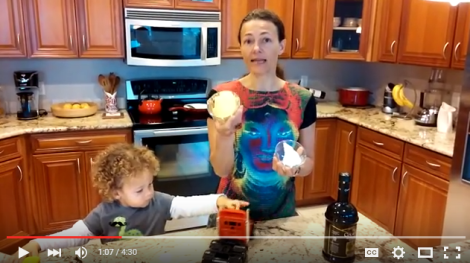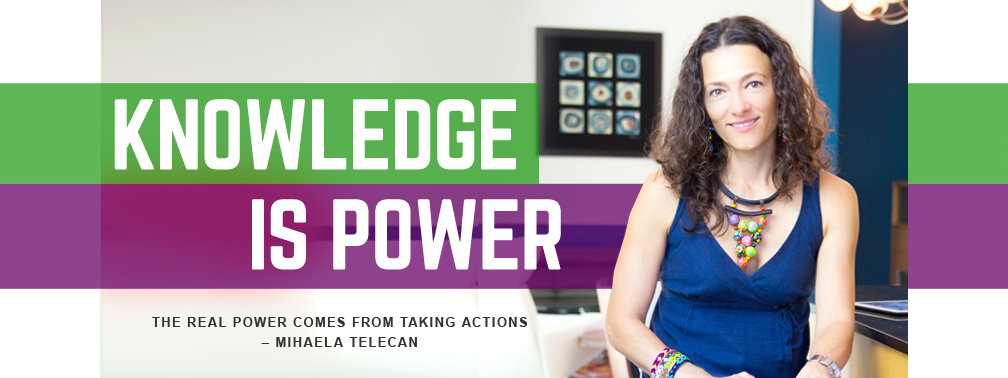hi

Do You Need an Oil Change? {part one}
I get this question a lot. “What fats do you use for cooking Mihaela?” This is a controversial subject to say the least. There is a lot of confusion and conflicting information when it comes to fats. So here is the scoop on fats. (Let me know after you read this post if you think you need an oil change).
Everybody is familiar with these statements: “cholesterol and saturated fats are clogging up your arteries”, or “cholesterol and saturated fats are the cause of heart disease and stroke”. For decades health care practitioners (including myself) educated you that it’s best to avoid cholesterol, to choose low fat and fat free products versus full fat once and so on.
Before we cast our vote let’s take a look at how we humans started our life here on Earth.
Our ancestors for millennia where using animal fats and tropical fats for cooking; they certainly didn’t have access to margarines or vegetable oils, for a very long time. They ate food found naturally in their environment, food was scare, hard to get, and they went from fast to famine. Later with the industrialized era the food we ate changed too. The ear of processed foods began.
It all changed around 1950s when the diet-heart hypothesis was formulated by Ancel Keys. He managed to show that there was a correlation between the type and the amount of fats and cholesterol consumed and the incidents of heart disease. Dr. Natasha Campbell-Mc Bride states in her book Put your heart in your mouth: “It is completely baffling as to why on earth the scientific community at that time accepted this kind of scientific evidence”, and George Mann, eminent American physician and scientist said: “The diet-heart hypothesis is the greatest scientific deception of this century, perhaps of any century”.
Even today the mainstream medicine doesn’t quite fully accepted that the diet-heart hypothesis is false. This is why we have conflicting information about fats. You may hear from your doctor that saturated fats and cholesterol are bad for you while other practitioners such as Dr. Perlmutter the author of The Grain Brain book just to give you one example, will tell you to bring the butter back and to stay away from vegetable oils and margarines.
My goal today is to help you understand
- that you need fat in your diet (your brain is 60% fat by weight, your nerves are covered with a substance called myelin that’s 40% made of cholesterol, every cell membrane in your body is made of fats and protein);
- how fats are affected by heat, oxygen, and light;
- not all fats are created equal and I’d like for you to make informed decisions next time you go shopping, to know what fats to buy and how to use them to support your health and wellness goals.
Heat and oxygen cause structural changes and oxidation to fats. In an oxidized state the fats become detrimental to our health, contributing to inflammatory processes in the body. Not all fats are equally denatured by heat however. By the end of this article you’ll understand what fats are heat sensitive and therefore not your best choice when it comes to cooking.
Fats 101:
There are 3 main categories of fats:
- Saturated
- Unsaturated (poly and mono-unsaturated fats)
- Trans Fats
In this article I’ll touch on the first group. Let’s talk Saturated fats first:
They are the best fats to use for cooking and here is why.
Some properties of saturated fats (SF) that makes them suitable for high temperature cooking are:
- SF are more stable at high temperature
- Have a high smoking point, meaning the temperature at which they catch fire is high
- Don’t get easily denatured by high heat, oxygen & light
- They have a longer shelf life and are more resistant to rancidity
The above characteristics make saturated fats the least affected by heat and make them your best choice when it comes to frying, baking, roasting and sautéing.
How do you recognize a saturated fat (SF)?
- SF are solid at room temperature & solid in the refrigerator.
Some examples of saturated fats are:
Animal sources:
- Butter and ghee (clarified butter). Choose those from grass fed, pasture raised cows
- Lard (fat coming from pork)
- Tallow (fat coming from beef)
- Other fats saved from roasting chicken, duck, goose
- The visible fat on red meat and under the poultry’s skin
Vegetable sources:
- Coconut oil/butter
- Palm kernel oil/butter
Note: all fats found in nature have some degree of saturation, however cholesterol is only found in animal food sources. So, vegetable fats can be saturated but are always free of cholesterol.
That’s it for today, see you tomorrow with part II, the scoop on unsaturated fats, including my take on canola oil.
Thanks for reading, don’t forget to share and leave a comment below.
Love and good fats,
Mihaela
P.S. This article was also published on The Elephant Journal.



